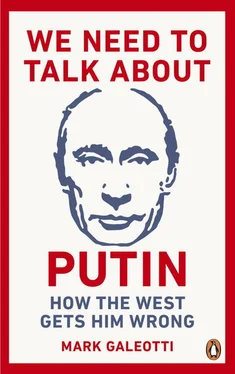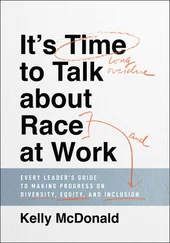After Crimea, Putin stirred up a proxy war in Ukraine’s south-eastern Donbas region that, four years on, is stalemated and has cost Russia dearly in terms of international credibility, economic sanctions and the need secretly to bankroll two pseudo-states there. But I was in Moscow in March 2014, when this undeclared war began, and what struck me then was that everyone I spoke to – government insiders, military types, think-tankers – was sure that this would be a short and limited intervention. Within six months, I was told, Ukraine would have got the message, have realised that it would be destabilised if it tried to break away from Moscow, and come back into the fold. The Russian troops, spooks and saboteurs in the Donbas would be home, and the West would have forgotten all about it. This was not too ridiculous an assumption, as it is what essentially happened after Russia’s invasion of Georgia in 2008, but the point is that there seems to have been a consensus that it would be another easy win. It didn’t work out that way, but Putin had presumably believed what everyone told him. This was Putin the badly advised, not Putin the bold.
He is, of course, willing to take chances when he must, but he will do everything he can to minimise the risks. For example, Russia’s intervention in Syria in September 2015 risked conflict with the Americans or their proxy forces or else embarrassing losses. So serious thought went in to avoiding foreseeable dangers. A relatively small number of aircraft was deployed, every effort was made to avoid hitting Western forces on the ground, and when they needed to send in ground troops to stiffen Syria’s wavering army, instead of regular forces they sent ‘mercenaries’ working for the Wagner Group, a front organisation set up by military intelligence. Even though most of Wagner’s soldiers were Russian, it meant that the Kremlin could reassure ordinary Russians that their boys would not be coming home from the Middle East in body bags, and that, if any did die at the hands of the Americans (as happened in 2018), Moscow could pretend it had nothing to do with them.
When it is time for tough decisions, Putin tends to fudge and hedge. In March 2016, he announced that Russian troops would be withdrawn from Syria, and many within the military command – many of whom had served as junior officers in the Soviet Union’s bitter war in Afghanistan in 1979–88 – were jubilant. ‘We’ve done something the West never managed,’ one told me. ‘Intervened in the Middle East without getting bogged down.’ He shouldn’t have tempted fate, because Putin then seems to have changed his mind, disconcerted by different opinions about the likely outcome, turning the supposed withdrawal into a simple rotation of forces. Two and a half years later, Russia is still in Syria, and while things are currently going Damascus’s way, the longer you stay in a war, the more chance there is of painful surprises.
One such struck in November 2016, when a Russian Su-24M attack aircraft cut briefly into Turkish airspace during a bombing mission in northern Syria. In what appears to have been a deliberate ambush, Turkish F-16 fighters popped up from low altitude and shot it down; having ejected, one of the crew was rescued but the other was shot and killed by rebels while still in the air. Putin was visibly furious, calling it a ‘stab in the back’, placing sanctions on Turkey and threatening more serious retaliation. But Turkey’s President Erdoğan snarled back and it was eventually the Russians who backed down, after the Turks had provided a face-saving statement of regret – though not an apology.
Putin often shows a similar unwillingness to face direct challenges in domestic politics. For example, when unexpectedly strong protests greeted unpopular pension reforms in 2018, Putin – who had in 2005 publicly promised that the pension age would not be raised on his watch – at first tried to ignore them, and then rather weakly allowed his spokesman to say that it was a matter for the government in which ‘the president is not taking part’. This excuse would not wash, and he eventually offered a watered-down version of the reforms that, like so many compromises, pleased no one.
One can legitimately ask how far Putin’s macho antics reflect not an alpha male in his prime, but a leader using them to mask a lack of confidence, to mask a lack of strength. What, one might wonder, is the man who cannot seem to walk past a fighter plane without a photo opportunity – despite not having completed national service himself – trying to prove? None of this is to say that he is a coward, but rather that he is a rational actor, and even a cautious one. He can, of course, get things wrong, but his aggressive antics and bombastic bluster tend to be carefully judged and calibrated. He has concluded, not without grounds, that Western countries, and especially most European ones, are deeply uncomfortable with confrontation. By playing the role of the unpredictable troublemaker, he hopes that they West will find it easier to make a deal with him than take a stand against him. But that does not mean that his policy comes from below the waist and that we should take his postures and rhetoric at face value.
Chapter 7: Putin Is Popular, and Not
The odds of popping into a British bookshop and coming out with a framed portrait of the prime minister are, I think it’s fair to say, pretty slim. Yet go to the big Moskovsky Dom Knigi (or Moscow House of Books) on New Arbat Street and upstairs you can get your pick of pictures – a Medvedev maybe, probably a Shoigu, usually one of Moscow mayor Sobyanin, but above all, there will be Putins. Then, head to one of the souvenir kiosks and pick up a Putin T-shirt, or perhaps a fridge magnet calling him ‘the most polite of people’ – a play on the Russian term for the ‘little green men’ who took Crimea. If that’s not enough, why not splash out 232,000 rubles – or £2,800, almost eight times the average Russian monthly wage – on a limited edition Supremo Putin Damascus iPhone? Made from white gold and Damascus steel, it’s decorated with a picture of the man himself, the Russian coat of arms and one of his less-than-snappy catchphrases: ‘We will respond to all challenges!’
Some of this is for tourists, and some of it is for those who feel they need ostentatiously to demonstrate their loyalty. Yet it also reflects Putin’s very real – but also paradoxical – popularity in his country. As of late 2018, his personal approval ratings have plummeted to a mere 66 per cent because of his lacklustre handling of pension reform, when he had previously been in the eighties. Yet even this ‘low’ figure is the kind of level that Western politicians would kill to achieve: at the same time, for example, British prime minister Theresa May’s is at 25 per cent, French president Emanuel Macron’s is 32 per cent and US president Donald Trump’s is a highly polarised 42 per cent.
So Russians are happy? It’s not quite that simple, as Putin’s personal popularity ratings are only part of the story. Even setting aside the problems of polling in a fairly authoritarian state, Putin is not being benchmarked against any rival. Who, after all, did he stand against in the 2018 presidential elections? Well, there was Vladimir Zhirinovsky, the seventy-two-year-old caricature ultranationalist, who has written longingly about an imperial push southwards until ‘Russian soldiers can wash their boots in the warm waters of the Indian Ocean’. There was Pavel Grudinin, a millionaire who was standing for the Communist Party, even though he had never been a member. Then there were other candidates who stood no chance of getting onto the second ballot, including Ksenia Sobchak, daughter of Anatoly Sobchak, Putin’s patron from the St Petersburg days. Best known as a socialite and reality television host, she was standing on an ‘against everyone’ platform.
Читать дальше












